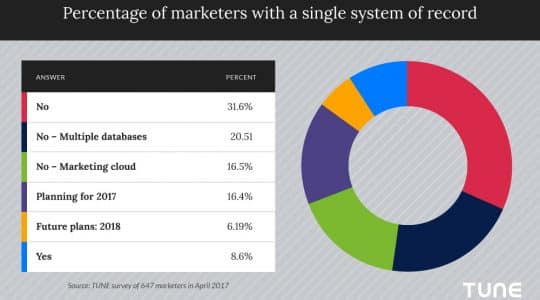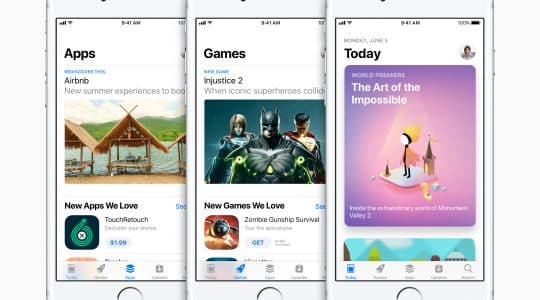
This is a guest blog post by Paweł Hałabuda from mobile development company Whalla Labs.
Growing the user base of your mobile application is one of the most important parts of developing a successful digital product. Let’s face it: whatever your monetization strategy is, it’s the app users who will pay you. The bad news is that mobile user acquisition is getting more and more difficult in its cost and effectiveness. Just last year, the cost of acquiring new users has doubled on iOS devices, according to VentureBeat.
It has become even trickier as the average number of apps downloaded every day has recently shrunk (though it is still above zero). Luckily, there are a few marketing tricks that you can use in your favor to make your acquisition strategy cheaper and more effective. Let’s get right into it:
Lower the costs of user acquisition with these 5 growth hacks
1. Create a landing page
This is actually one of our favorite hacks. It is so simple and effective that Buffer chose it as a way to promote its business at the very beginning and it led them to become one of the most successful online tools. One of the advantages of creating a landing page is that you now have a channel you can control and drive relevant traffic to. You can include links to every app store you have your app in, write and test different headlines and copy, and more.
2. Invest in app store optimization (ASO)
ASO is SEO (Search Engine Optimization) for your mobile app. And just like you’ve optimized your website to reach a wide audience of people searching for relevant keywords via search engines, you should optimize your app store pages to get your app in front of more potential users. The great thing about ASO is that if you do it by yourself, the only thing you will spend is your time. Choose keywords relevant to your app and optimize your title, copy and even image attributes to make sure that your app comes up when someone searches for it. Make sure to optimize every element with this ASO cheat sheet.
3. Cross-promote your app
While marketing your new mobile app, you need to remember one thing: you are not the only app marketer out there. But while some marketers may think about other marketers as competition, try to find those who you can help and – in return – they will help you as well. Cross-promotion is key here. Simply use other apps’ advertising space to promote your app, allowing others to do the same in your advertising spaces. If you already have a successful app and want to boost the growth of another one, use exactly the same pattern. Ketchapp used this strategy and they managed to build a real growth machine that catapults every new title to the top 10.
4. Get as much traffic as you can
Mobile marketers often make a mistake of choosing only one channel to distribute their app. The only possible excuse for this is a really limited budget. Otherwise you should be present on as many channels as you can, including social media, search engines, and affiliate programs to start. Use your website or landing page (as discussed above) to create a compelling ad for your new mobile app and drive targeted traffic with paid advertising.
5. Use video advertising
It may not be the cheapest growth hack out there, but it definitely is one of the most effective. As mobile video advertising is an emerging trend, it is also an effective channel of user acquisition. If you can afford creating a video ad of your app or mobile game, it could be the channel to drive the most downloads and installs.
A final word
Promoting mobile apps is a challenge, but it doesn’t have to be an arduous one. With these five simple growth hacks for user acquisition, you are now able to test different approaches and promotion channels to find the one that will work the best for you.
What are your proven methods of user acquisition? Let us know below, and we will gladly discuss with you in the comments.
Author
Becky is the Senior Content Marketing Manager at TUNE. Before TUNE, she handled content strategy and marketing communications at several tech startups in the Bay Area. Becky received her bachelor's degree in English from Wake Forest University. After a decade in San Francisco and Seattle, she has returned home to Charleston, SC, where you can find her strolling through Hampton Park with her pup and enjoying the simple things in life.




Leave a Reply
You must be logged in to post a comment.